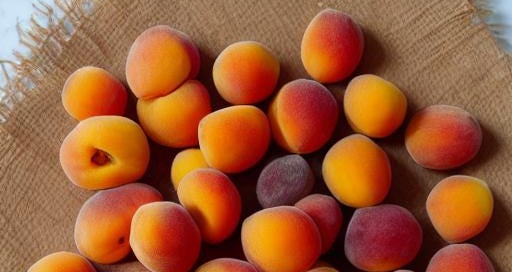Forget about an apple a day keeping the doctor away! An apricot a day keeps the doctor away actually! Of course, I'm joking; the heavenly aromatic and tasty apricots (Prunus armeniaca) are just as good as the apples. You can eat them fresh, dry, or in various jellies or compotes.
Apricots are high in fibres such as pectine, protein, vitamins A, B5 (pan…
Keep reading with a 7-day free trial
Subscribe to genuineprospect to keep reading this post and get 7 days of free access to the full post archives.



